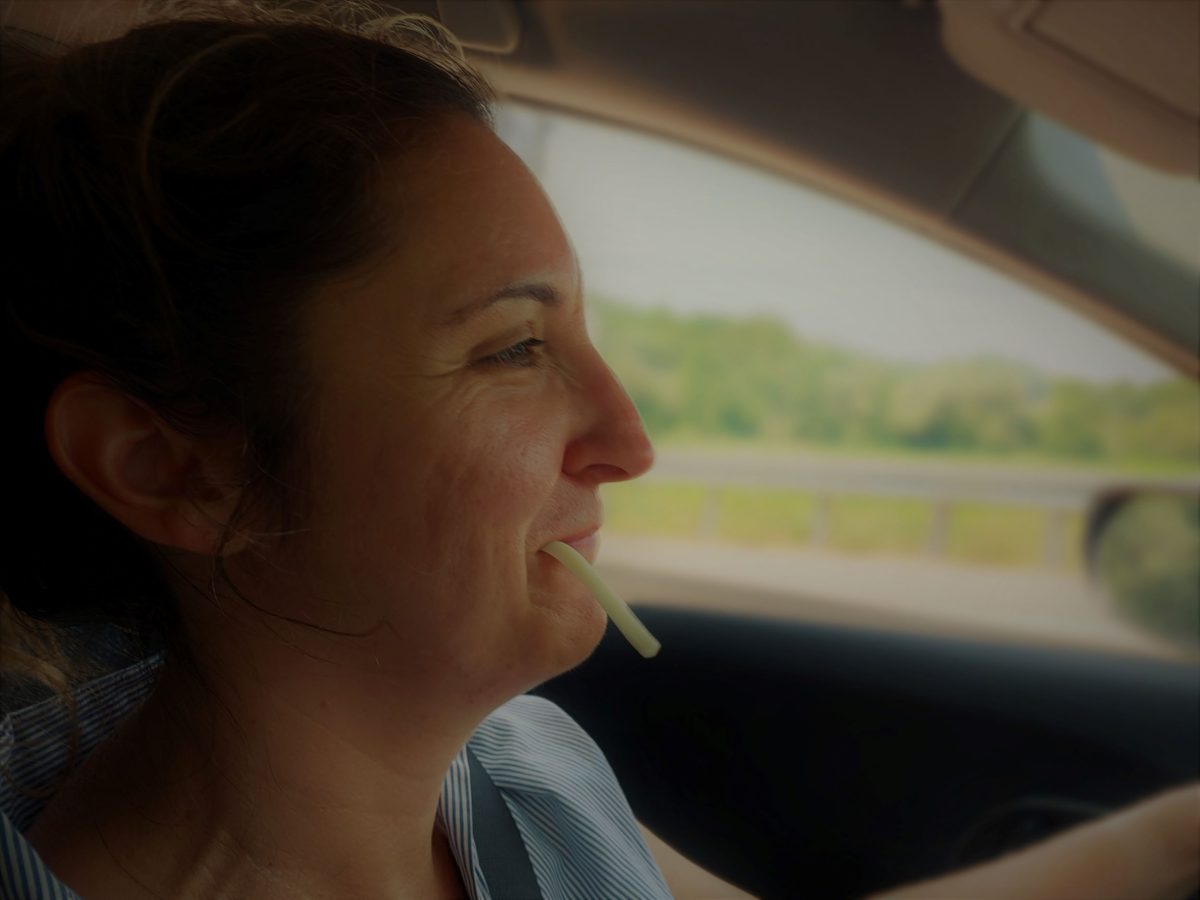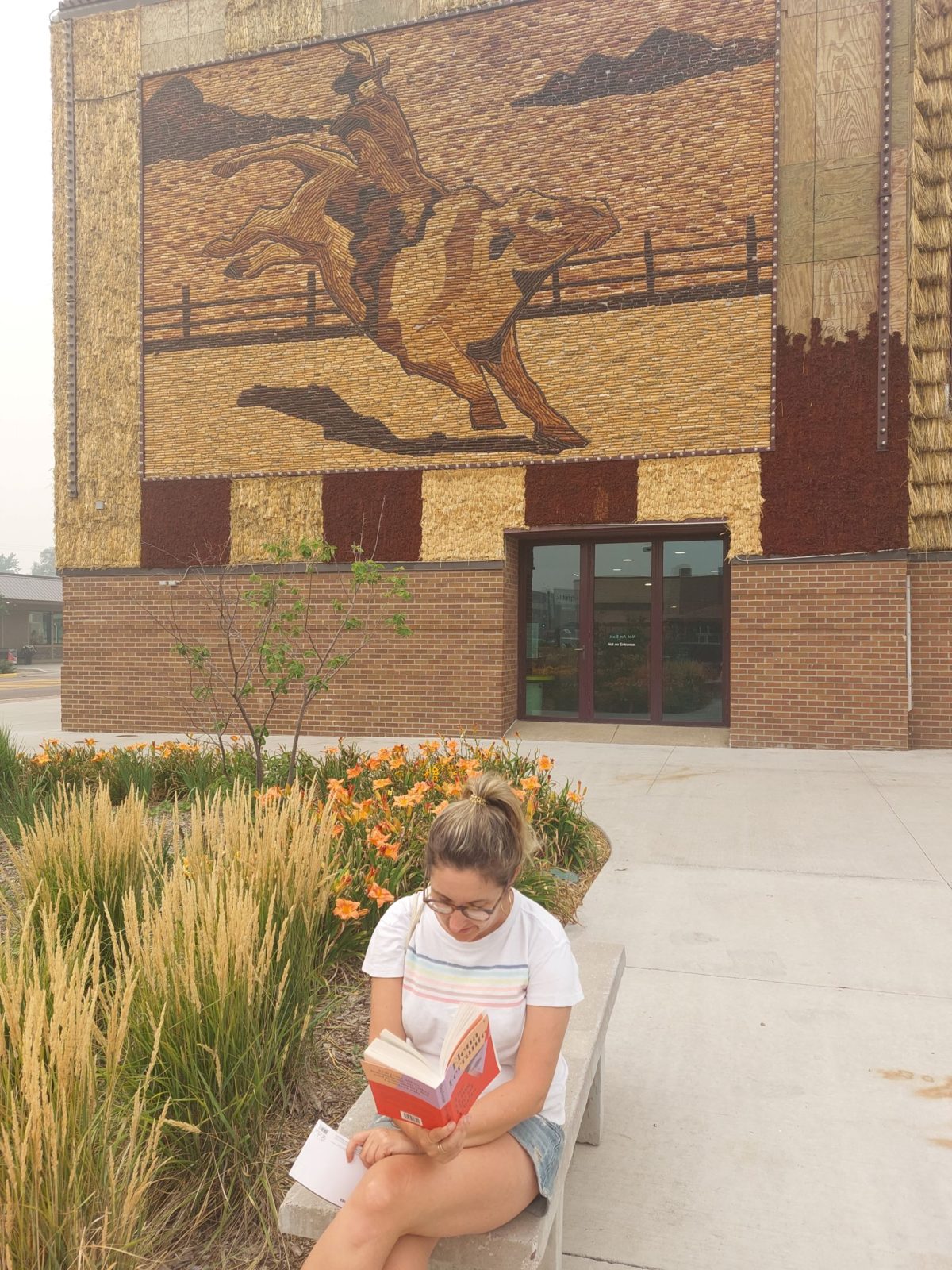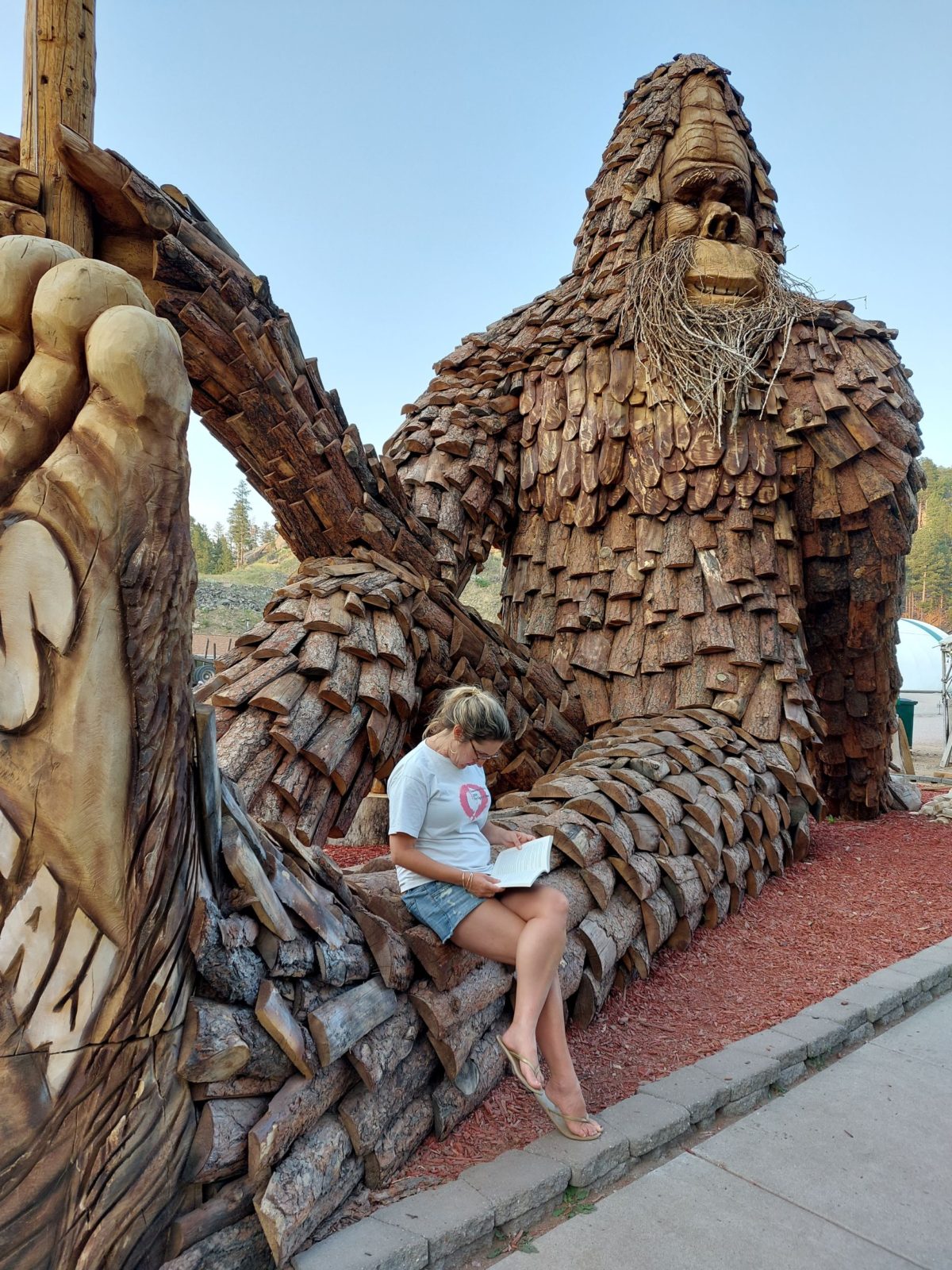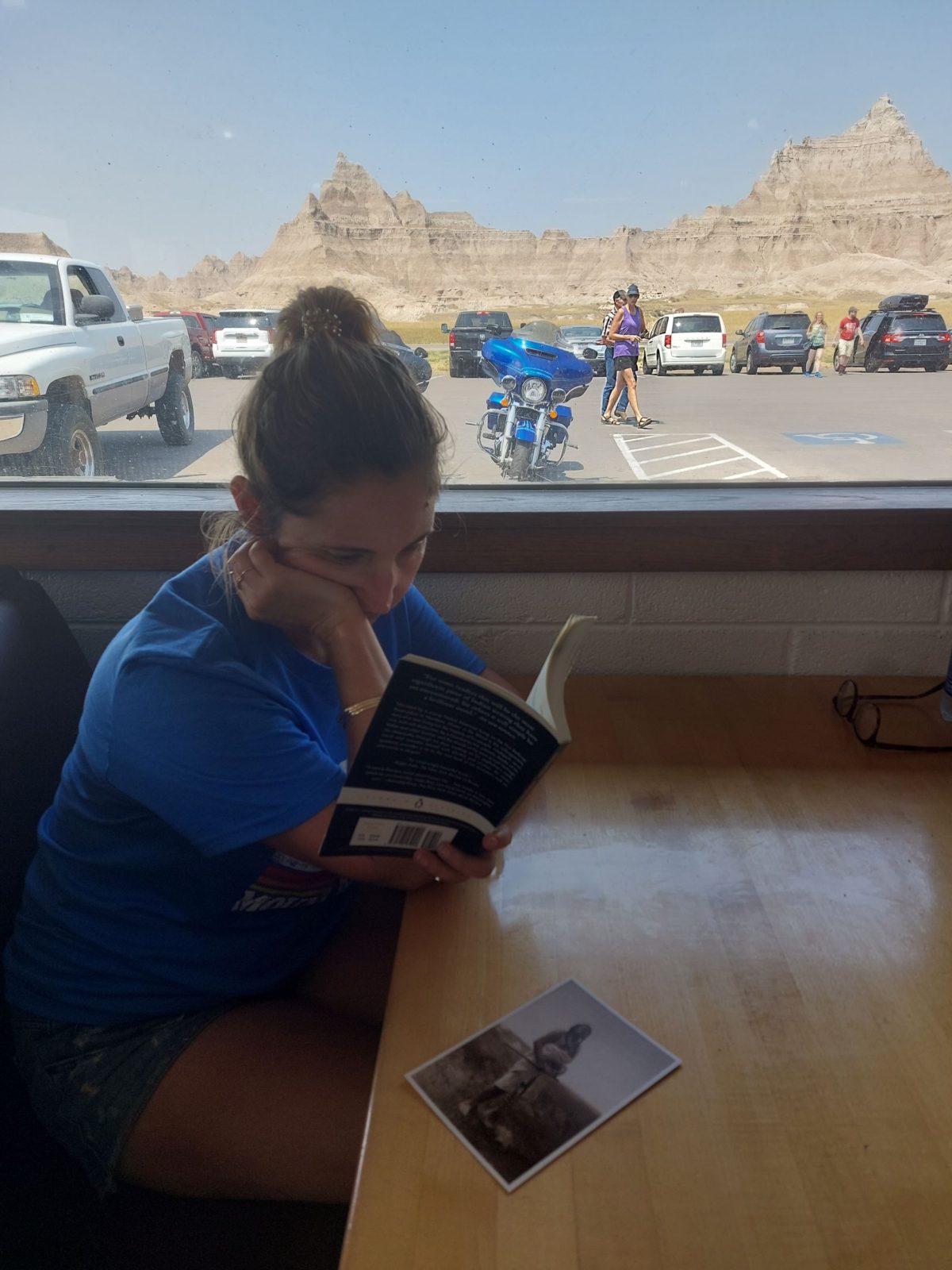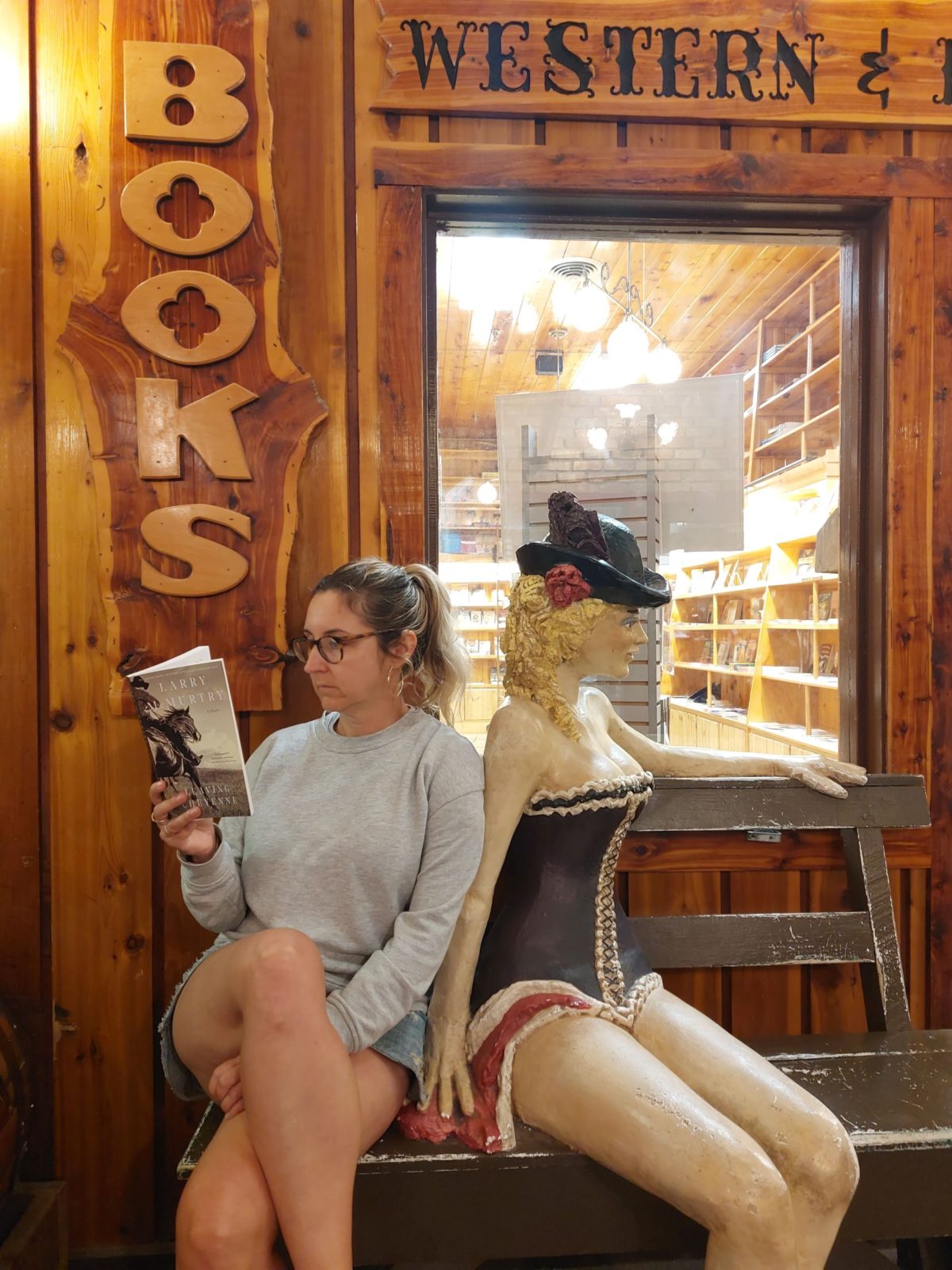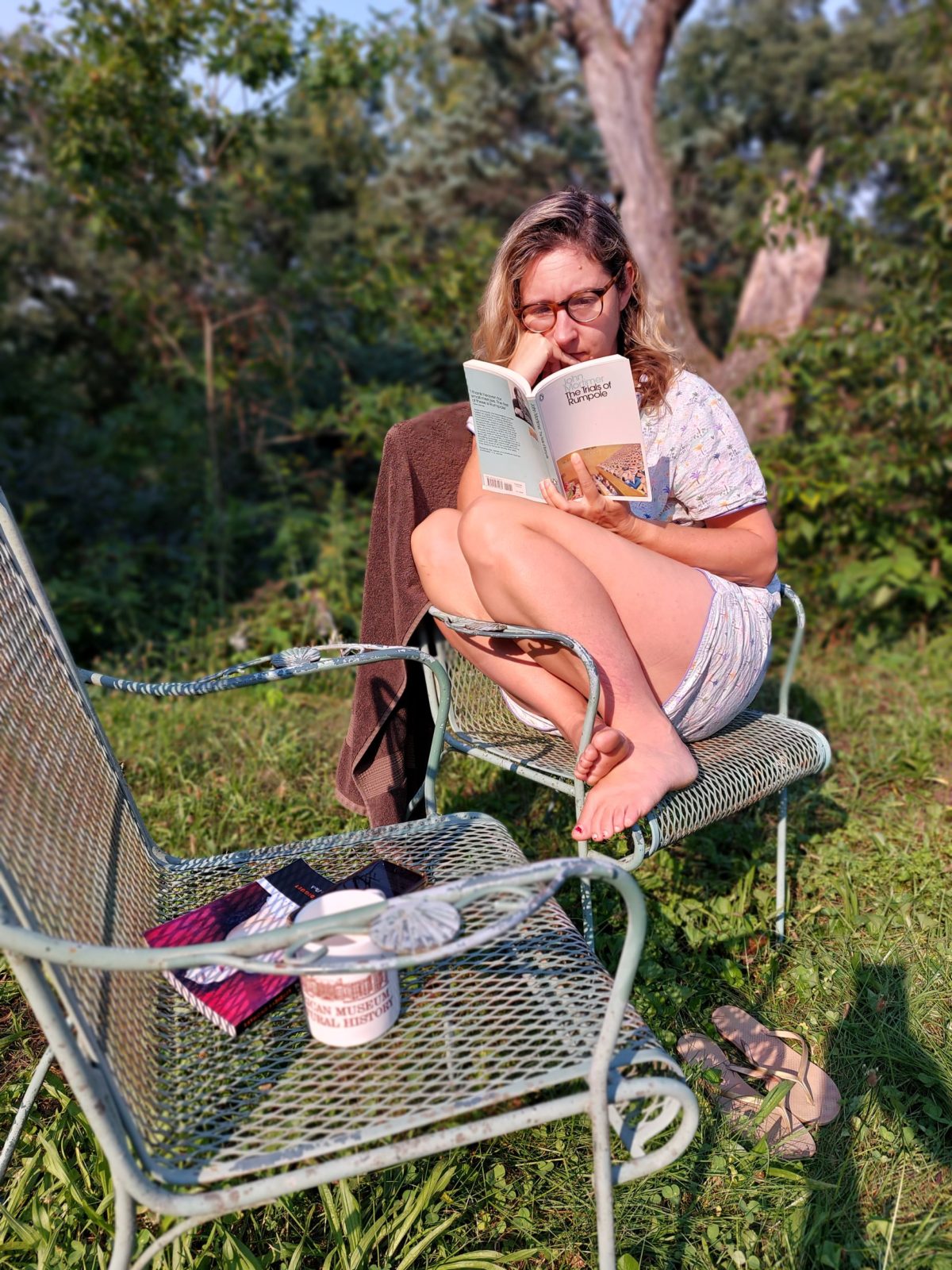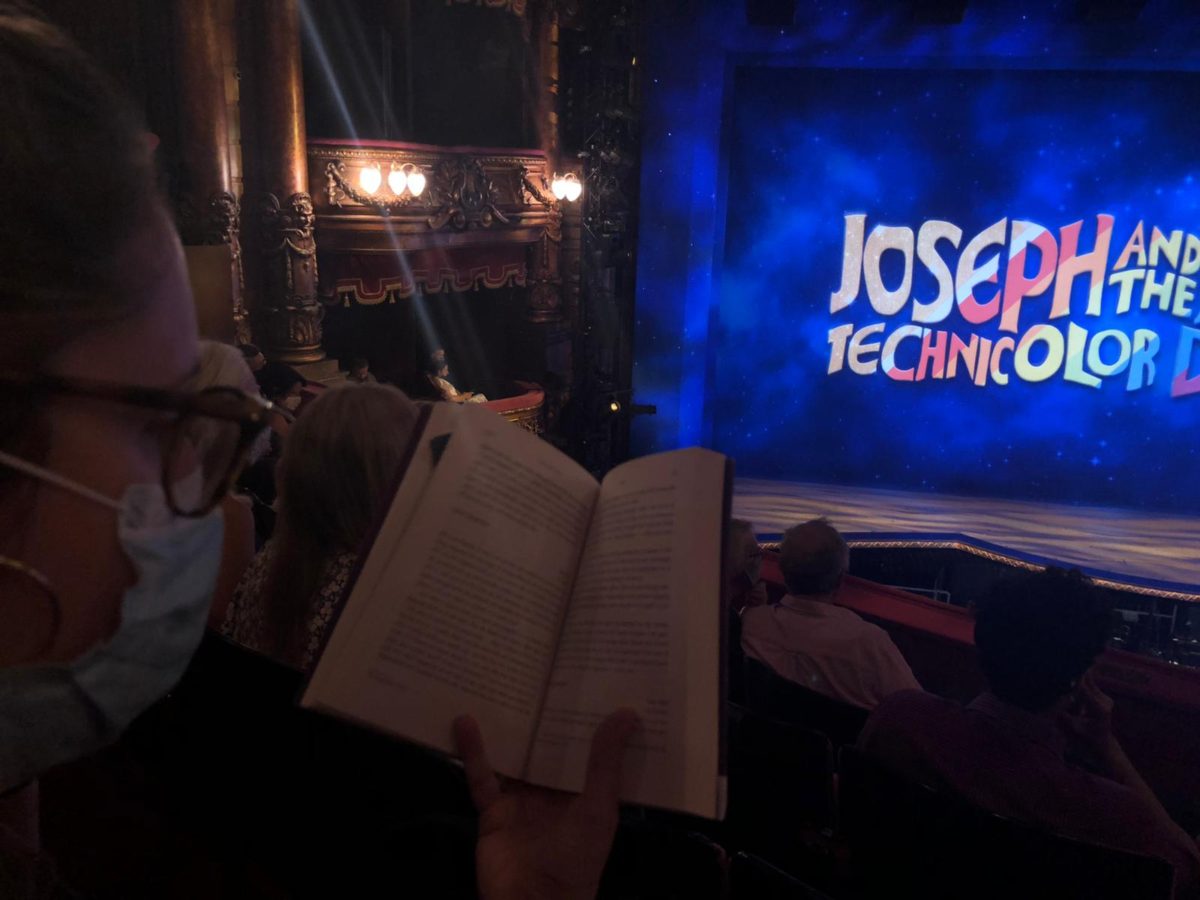I listened to this book, which is about a long journey by wagon from Wisconsin to South Dakota, while making a make shorter journey by car from Wisconsin and South Dakota. ALL HAIL THE COMBUSTION ENGINE! I thought ten hours was a lot, but that was as nothing to the multiple weeks it took, Pa, Ma, Mary, Laura and Baby Carrie Ingalls.
Not much has improved in terms of entertainment. I googled ‘things to do off the I-90’ and the most helpful suggestion was from a trucker who said people do like to laugh at the ‘Kum and Go’ gas station (this I had already done), and maybe eat some pancake-wrapped sausages there, but there is not much else to do unless ‘you like the smell of pig sh*t.’
This semi-autobiographical story is a pretty interesting account of the settler experience. It is quite amazing to see how they managed to create a homestead out of an axe, a gun, and the prairie. It was also interesting to see that they clearly understood that they were taking land from the Native Americans. I would have expected some kind of soft-soaping, but it is exceedingly clear that they are in conflict with people already using the land, and understood themselves to be in conflict with them. They are essentially waiting for the government to hand the land over to them. I learn from Wikipedia that Ingalls daughter, who owned the rights to this story, was a raging libertarian, so I find this hilarious.
What I will probably most remember about this book is it’s success in capturing a small child’s view of the world. Many books try this, and very few succeed. It was really elegantly done here. I expected a much less sophisticated book, for some reason. I now understand why it’s a classic.

